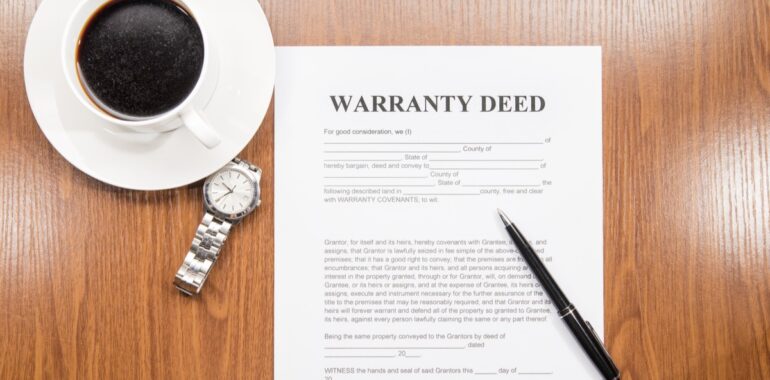By Susan M. Keenan
The legal documents used to transfer titles to real estate are referred to as property deeds.
The names of the legal owners to real estate are placed directly onto the property deeds. Each time a piece of real estate is sold, a new property deed must be issued. The two most commonly used types of property deeds are warranty and quit claim deeds.
Warranty Deeds
Commonly used in most real estate transactions, warranty deeds provide guarantees that the property being sold is free and clear of any encumbrances or claims. The grantor, or seller of the property, warrants that he is the rightful owner of said property and that he holds the title to it. Therefore, he offers the assurance that he has the right to transfer the title to the property. The guarantee that the property is free and clear is limited to that particular transaction only. Each time a property is sold, a new deed must be issued.
Quit Claim Deeds
Used when special circumstances exist, quit claim deeds do not offer any guarantees that the property is free and clear. However, the grantor of the real estate guarantees that he
owns the property and has the right to transfer it with a quit claim. Circumstances when quit claim deeds are used include:
•Property ownership is transferred into a living trust.
•A spouse is removed from inclusion on the deed.
•A property is transferred as part of an inheritance.
Survivorship Deeds
A survivorship deed is used to transfer ownership of a property to a surviving spouse. It is used most commonly when property is purchased by couples and one of the spouses dies. This type of property deed allows the surviving spouse to avoid probate.
Life Estate Deeds
A life-estate deed is designed to transfer the title to real estate directly to a new owner upon the previous owner’s death. It is sometimes used when a parent promises a child that he will receive the property when the parent dies. A life-estate deed includes the stipulation that the parent can remain in the home until the time of his death. Life estate deeds are utilized less frequently than other types of property deeds.
If you have questions or want to set up a deed transfer, consult with a well qualified real estate lawyer. Help is just a phone call away. Call us at 855-768-8845.






